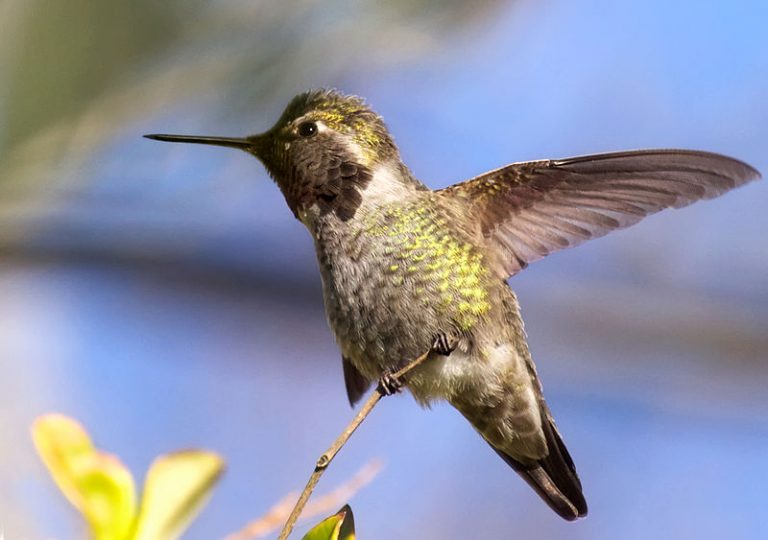Published on May 10, 2021

Here’s something worth tweeting about: Being around more birds can boost your family’s happiness. A recent German study of more than 26,000 Europeans found that the cheeriest folks lived near natural areas with a wider diversity of bird species.
And no need to know the difference between wood thrush and white-throated sparrow whistles—turns out simply seeing and hearing a variety of feathered friends is enough. (Although learning how to ID birds’ songs and calls is a cool way to tune into nature with kids. And here are some bird bios to get them started.)
Since songbirds in particular tend to be cute and colorful, it seems natural that having more of them close by would be a good thing. But the mood lifter isn’t from the birds alone, researchers say. Instead, it’s the rich biodiversity, or variety of life, found in places birds call home. Here’s a quick look at why nature makes kids happy, as well as some tips for turning your backyard into a mini birding sanctuary.
“Many studies have shown that spending time outside in nature, or even viewing it from a window, can benefit mood and cognitive function, as well as reduce stress and anxiety,” says Greg Bratman, assistant professor of nature, health, and recreation at the University of Washington School of Environmental and Forest Sciences.
For instance, this “nature pill” study found that a 20-minute nature break can significantly reduce levels of the stress hormone cortisol. Other studies, Bratman says, have shown similarly positive impacts on heart rate, blood pressure, and other aspects of the autonomic nervous system.
That’s why Bratman, who led a recent review of research linking the environment and well-being, encourages families to make nature part of their daily lives.
“Trips to natural areas can contribute to well-being,” he says. “But regular instances of experiences with nearby nature can have effects as well.”
But why are birds so important to nature’s biodiversity—and therefore your family’s potential happiness? For one thing, birds are an indicator species, meaning they basically function as a “check engine light” for biodiversity. When something is out of whack in nature, birds let us know—often by disappearing—because they need a healthy environment to survive.
Of course, birds aren’t the only indicator, but since they’re found almost everywhere in the world and are easy to study, their presence—or absence—is a good way to measure the variety of life that research shows can boost mood.
So, would biodiversity without birds have the same effect? For instance, could seeing lots of poop-eating dung beetles—an indicator species in some parts of the world—increase happiness? Or is there something about birds that naturally sparks joy?
Continue reading at National Geographic.
Originally written by Maryellen Kennedy Duckett for National Geographic.